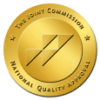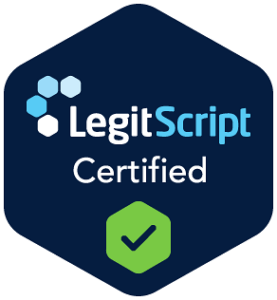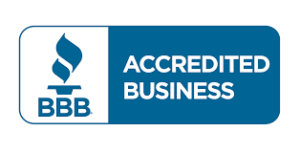Family Therapy in Tennessee
Addiction doesn’t just land on one person. It lands on everyone who loves them. By the time someone reaches out for help, most families in Tennessee are already exhausted. You may have been lied to, stolen from, or pulled into crisis after crisis. You might feel angry and scared one minute, then guilty and hopeful the next.
That mix of love, frustration, and fear is exactly why Family Therapy in Tennessee matters. When one person enters treatment, the whole family system is affected. If only the individual gets help and nothing changes at home, recovery has a much harder time sticking.
At Tennessee Detox Center, family therapy for addiction in Tennessee is not just an optional add-on. [1] It’s part of the clinical team’s approach to long-term recovery. Family therapy gives you a structured place to talk about what’s really been happening, learn what addiction and mental health conditions actually are, and start building new patterns that support healing instead of fueling more chaos.
This isn’t about blaming “the addict” or blaming parents, partners, or kids. It’s about recognizing that substance use and co-occurring mental health issues live inside a web of relationships. When that web starts to heal, everyone has a better chance at stability. Whether your loved one is in detox, residential care, or stepping into a lower level of care, a family program in Tennessee can help you stop fighting this alone.
Tennessee Detox Center operates like a family therapy center in Tennessee, supporting both the person in treatment and the people around them. Through structured sessions, education, and ongoing support, family therapy treatment in Tennessee helps you move from walking on eggshells or constantly policing your loved one to setting clear boundaries and working together toward recovery.
If you’ve been thinking, “We can’t keep doing this,” but you’re not sure what else to try, family counseling inside an addiction treatment setting may be the next right step.

What Is Family Therapy in Addiction Recovery?
Family therapy is a form of counseling that focuses on relationships among people, not just the symptoms of one individual. In addiction treatment, family therapy in Tennessee looks at how everyone in the family is affected by substance use and mental health, and how each person’s reactions can either support recovery or unintentionally keep old patterns alive.
The “client” in family therapy is the family system. That can mean parents and adult children, spouses or partners, siblings, grandparents, or chosen family. Sessions are led by a trained therapist who understands both addiction and family dynamics, and who knows how to keep difficult conversations safe and productive.
The main goals of family therapy for addiction in Tennessee usually include:
- Improving communication so people can say what they actually feel without every talk turning into a fight
- Reducing blame, name-calling, and constant second-guessing
- Clarifying boundaries around money, housing, childcare, and safety
- Helping family members support recovery without enabling destructive behavior
- Giving everyone a space to talk about their own hurt, fear, and burnout
This is very different from trying to “hash it out” around the kitchen table. A qualified therapist keeps sessions focused, slows things down when emotions spike, and helps each person see their role in the pattern without shaming them.
Family therapy vs “talking about home.”
Families in crisis often keep trying the same cycle:
- Something happens (relapse, fight, missed event, police call)
- Everyone explodes or shuts down
- There’s a big talk, lots of promises, maybe a temporary peace
- Nothing changes underneath, so the cycle repeats
Without structure, those talks usually turn into lectures, interrogations, or one person withdrawing while everyone else vents. Old resentments pile up, and people stop believing anything will be different.
In family therapy in addiction treatment in Tennessee, sessions are:
- Scheduled and time-limited, so they don’t drag on for hours
- Guided by someone neutral who isn’t taking sides
- Focused on specific goals, like setting new rules around money or discussing a relapse plan
- Grounded in education about addiction, mental health, and recovery, not just opinions
That structure is what allows families to start having new kinds of conversations instead of replaying the same arguments over and over.
How family therapy supports addiction and co-occurring disorders
Many families at Tennessee Detox Center are dealing with more than substance use.[2] They’re also trying to navigate anxiety, depression, bipolar disorder, PTSD, or other mental health concerns. That’s where family therapy for co-occurring disorders in Tennessee comes in.
In this context, family therapy helps loved ones:
- Understand how mental health symptoms and substance use feed into each other
- Learn what panic attacks, mood swings, or trauma responses actually are
- Recognize early warning signs that a relapse or mental health crisis may be coming
- Respond in a way that’s firm and compassionate instead of reactive or panicked
For example, a family might develop a plan for what happens if their loved one stops taking medication, starts isolating, or shows signs of mania or severe depression. Instead of everyone guessing what to do in the moment, they already have a set of agreed-upon steps
Evidence-based approaches behind family therapy
Quality family therapy treatment in Tennessee doesn’t rely on guesswork. [3] Therapists at a good family therapy rehab will often draw from:
- Structural family therapy: looks at roles, hierarchies, and boundaries inside the family and helps shift them into healthier patterns
- Systemic or “systems” therapy: focuses on patterns and interactions rather than blaming one “identified patient”.
- Skills-based models that teach families how to support change without enabling, and how to stay connected without losing themselves
These approaches are adapted to addiction treatment, so they’re grounded in what actually works in recovery, not just what sounds good on paper.
Family Therapy in Tennessee: How It Works at Tennessee Detox Center
At Tennessee Detox Center, family therapy in Tennessee is built into the way care is delivered, not tacked on at the last minute. The goal is to support the person in treatment and the people who are going home with them, because long-term recovery depends on both.
Family involvement looks different across detox, residential treatment, and step-down care. Here’s what you can generally expect.
The detox and early residential phase is usually the most intense part of treatment. You may be worried about your loved one’s safety, unsure what you’re “allowed” to ask, and confused about what’s actually happening day to day.
In family therapy inpatient rehab in Tennessee, the focus is on:
- Education and stabilization
- Clear communication between the treatment team and the family
- Laying the groundwork for deeper family work later on
That can include:
- Initial family contact: A clinician or case manager reaches out (with your loved one’s consent) to gather history, answer questions, and explain how the program works.
- Psychoeducation sessions: Families learn about addiction as a medical and psychological condition, how withdrawal works, and why detox alone isn’t enough.
- Structured family sessions: Short, focused meetings that may happen by phone, video, or in person, depending on geography and scheduling. These sessions are guided, not free-for-alls.
The goal at this stage of family therapy rehab in Tennessee isn’t to unpack every painful event from the last ten years. It’s to:
- Start repairing basic communication
- Give loved ones information they haven’t had
- Help the family understand what to expect as treatment continues
When families feel less in the dark, they’re better able to support the process rather than unintentionally undermine it.
As your loved one stabilizes and moves into lower levels of care, family therapy usually becomes more detailed and practical. This is where family therapy outpatient rehab in Tennessee really starts to matter, because your loved one is spending more time at home or in the community.
In a Partial Hospitalization Program (PHP) or Intensive Outpatient Program (IOP), family therapy can help you:
- Rebuild trust after years of broken promises or secrecy
- Set realistic house rules around curfews, driving, phone use, visitors, and finances
- Talk about what “support” actually looks like day to day instead of assuming everyone means the same thing
- Navigate early recovery triggers like social events, holidays, or stressful family gatherings
This is also where family therapy in addiction treatment in Tennessee helps you adjust to the “new normal.” Your loved one may be changing fast in treatment, while the rest of the family is still catching up emotionally. Sessions give everyone a safe place to say, “This is what’s working… this is not… this is what I need from you.”
Many clients at Tennessee Detox Center are receiving help for both addiction and a mental health condition. In those cases, family therapy for co-occurring disorders in Tennessee is woven into dual diagnosis treatment.
That might involve:
- Helping families understand diagnoses like major depression, bipolar disorder, PTSD, or anxiety disorders
- Clarifying what symptoms are and aren’t (for example, the difference between a trauma response and manipulation)
- Creating a shared plan for what happens if symptoms flare, meds change, or a crisis hits
- Discussing how to respond if your loved one talks about self-harm, suicidal thoughts, or wanting to use again
Instead of every crisis turning into a frantic scramble, families work with the treatment team to build crisis and safety plans. They talk through questions like:
- Who calls whom in an emergency?
- When do we involve 911, a crisis line, or the treatment center?
- What do we do if our loved one refuses help?
This is what family support therapy addiction in Tennessee looks like at a practical level: real plans, not just vague promises to “be there.”
The exact schedule for family therapy in Tennessee depends on the program and the family’s needs, but it typically includes:
- Regularly scheduled family sessions during residential treatment
- Ongoing family sessions in PHP and IOP, often weekly or bi-weekly
- Additional contact when there are major changes, like a new level of care, a relapse, or a significant mental health event
Participants usually include:
- Parents, partners, or spouses
- Adult children or siblings
- Sometimes, extended relatives or chosen family are involved when the client wants them involved.
Consent and confidentiality are taken seriously. The clinical team explains what can be shared, what can’t, and how information flows between individual and family sessions. That clarity helps families feel safer about being open about their concerns in a family therapy center in Tennessee.
The main advantage of doing this work at a place like Tennessee Detox Center is that family therapy is tied directly to the treatment plan. As your loved one moves from detox to residential and into step-down care, the family work moves with them.
Taken together, this creates a true family program in Tennessee, not just a single meeting or a single education night, but a coordinated series of conversations and supports that help everyone move forward together.
What Are the Benefits of Family Therapy?
If you’ve been in crisis for a long time, it’s fair to ask, “What’s the point of more talking?” Family Therapy in Tennessee isn’t about rehashing every painful moment just to leave everyone raw and resentful. It’s about getting real benefits you can feel in daily life.
Less blame, more clarity
When addiction’s in the mix, blame usually flies in every direction:
- “If you cared about us, you’d just stop.”
- “If you’d back off and stop nagging, I wouldn’t use so much.”
- “If you hadn’t stayed with them so long, we wouldn’t be here.”
In family therapy for addiction in Tennessee, the focus shifts from “whose fault is this?” to “what patterns keep this going, and how do we change them?” That doesn’t erase the hurt, but it gives everyone a way to move forward.
Benefits here include:
- Fewer screaming matches that go nowhere
- Less silent treatment and walking on eggshells
- More understanding of what addiction and mental health conditions really are
When people understand the illness and the patterns around it, it’s easier to see each other as humans who are hurting rather than as enemies. [4]
Better communication and boundaries
Most families caught in addiction and co-occurring disorders have two extremes: either nobody talks honestly, or every conversation turns into a fight.
In family therapy treatment in Tennessee, you’ll work on:
- Saying what you actually mean without attacking
- Setting limits on money, rides, or access in a clear way
- Agreeing on house rules and consequences instead of constantly changing them
- Listening without jumping straight into lecturing or defending
That might sound basic, but it changes everything. When expectations are clear, and everyone knows the plan, there’s less chaos. You stop having the same argument ten different ways.
Lower relapse risk and a stronger recovery
Family therapy isn’t a magic shield against relapse, but it does lower risk when families are all pulling in the same direction. [5]
With family support, therapy, and addiction treatment in Tennessee, you can:
- Learn the early warning signs that your loved one is slipping
- Decide ahead of time how you’ll respond instead of reacting out of panic
- Encourage follow-through with meetings, therapy, meds, and self-care
- Avoid the “all or nothing” thinking where one mistake means “it’s over”.
When the home environment is safer and more predictable, it’s easier for your loved one to stay on track and easier for you not to burn out.
Healing for everyone, not just the person in treatment
Addiction and co-occurring disorders beat up the whole family. Parents, partners, and kids often carry just as much trauma as the person in active use.
Family counseling for addiction in Tennessee gives loved ones:
- A place to talk about their own fear, anger, and resentment
- Permission to set boundaries without feeling selfish
- Support to stop living in constant crisis mode
- Tools for self-care so their whole life isn’t centered on the addiction
Family therapy isn’t just about making you better at “supporting” your loved one. It’s about making sure you don’t lose yourself in the process.
Why Family Therapy Is Important in Addiction and Mental Health Treatment
You can send someone to detox and rehab, you can adjust their meds, and they can do solid individual therapy. If nothing at home changes, a lot of that work gets pulled back into the same old patterns.
That’s why family therapy in addiction treatment in Tennessee isn’t a bonus add-on. It’s a core part of doing this in a way that actually lasts.
Addiction and mental health don’t happen in a vacuum
Substance use and mental health symptoms don’t exist in isolation. They show up:
- At the dinner table
- During fights about money or parenting
- In late-night calls and missed holidays
- In how everyone reacts to stress and conflict
If treatment treats the family as if it doesn’t exist, it’s missing half the picture.
Family therapy for co-occurring disorders in Tennessee recognizes that:
- Anxiety, depression, PTSD, or bipolar symptoms affect the whole household
- Family reactions can make symptoms better or worse
- People often use substances partly to cope with family stress and unresolved pain
When you bring the family into treatment, you’re not just treating a person. You’re treating the environment they’re going back to.
Breaking generational patterns
A lot of families in Tennessee have seen some version of this before:
- Alcohol or drug use in earlier generations
- “We don’t talk about feelings here.
- Violence, emotional neglect, or constant instability
- Kids growing up too fast because the adults weren’t really available
If nobody talks about it, those patterns keep recycling.
With family therapy treatment in Tennessee, you can start to:
- Name what’s been happening out loud
- Decide which patterns stop with you
- Give younger family members a different experience of conflict and recovery
You can’t rewrite the past, but you can absolutely change what comes next.
Supporting long-term management of co-occurring disorders
Conditions like bipolar disorder, PTSD, and major depression aren’t usually “one and done” problems. They often need long-term care, sometimes for a lifetime. That can be scary for families who feel like they’re always waiting for the next crash.
In family therapy for co-occurring disorders, in Tennessee, families learn:
- What’s realistic for long-term recovery and symptom management
- How to recognize early warning signs without hovering
- The difference between a rough day and a real crisis
- How to support medication adherence and therapy without turning into the “mental health police”.
When everyone understands the condition and the plan, it’s easier to ride the ups and downs without losing hope.
Why individual treatment alone usually isn’t enough
Plenty of people do great work in detox or rehab, then walk straight back into:
- Old communication patterns
- Unspoken resentments
- Unrealistic expectations on both sides
They’re trying to live like a different person in an environment that expects the same old behavior. That gap is where many relapses and blow-ups occur
Family therapy rehab in Tennessee helps close that gap by:
- Translating what your loved one is working on in treatment into daily life
- Letting the family ask questions and voice fears instead of guessing
- Making sure everyone’s using the same language and goals around recovery
When the person in treatment and the people at home are on the same page, the odds of real change go way up.
Who Should Consider Family Therapy in Tennessee?
You don’t need to be a “perfect” family or have some official diagnosis to benefit from Family Therapy in Tennessee. If addiction or mental health issues are affecting more than one person in the house, family therapy is worth considering.
Your family might be ready for family therapy in Tennessee if:
- Addiction has led to repeated fights, broken trust, or “no contact” periods
- You argue constantly about how to handle your loved one’s behavior
- Some people want to help, and others are ready to give up
- You feel like you’re living in crisis mode most of the time
- You’re exhausted from trying to “keep the peace” or “fix” everything
- Co-occurring issues like depression, anxiety, PTSD, or bipolar disorder leave everyone confused or scared
If you’ve ever thought, “We love this person, but we don’t know how to live like this,” you’re exactly who family therapy for addiction in Tennessee was designed for.
There’s no one right way to be a family in this work. At a family therapy center in Tennessee, like Tennessee Detox Center, you’ll see:
- Parents trying to help an adult child who keeps cycling in and out of treatment
- Partners rebuilding after years of secrets and relapses
- Adult children dealing with a parent’s addiction or mental illness
- Siblings trying to repair relationships after years of chaos
- Blended families and chosen families who’ve stepped into a caregiving role
You don’t need everyone to agree or show up perfectly. Even if only a few people are willing to participate, family support therapy for addiction in Tennessee can still shift the dynamic in a healthier direction.
Family therapy can help at almost any stage:
- Detox and residential:
- When everyone’s scared, unsure what’s happening, and desperate for answers.
- Good time for education, basic communication repair, and setting expectations.
- PHP and IOP (outpatient rehab):
- When your loved one starts spending more time at home.
- Perfect time to set house rules, talk about triggers, and renegotiate responsibilities.
- This is where family therapy and outpatient rehab in Tennessee really shape day-to-day life.
- Post-treatment and continuing care:
- When old patterns try to creep back in.
- When families are dealing with new stressors like job changes, legal issues, or health problems.
You don’t have to wait until things are completely off the rails. Getting into family therapy in addiction treatment in Tennessee earlier usually means less damage to repair later.
Sometimes the person with the addiction or mental health condition isn’t ready to go to detox or rehab. That doesn’t mean you’re stuck.
Many family program addiction models still let families:
- Join family support groups
- Attend educational workshops
- Do their own sessions with a therapist who understands addiction
This can help you:
- Set healthier boundaries
- Stop feeding into the crisis cycle
- Feel less alone, even if your loved one isn’t ready to change yet
In other words, family therapy can be a lifeline even before formal treatment starts. You’re allowed to get help for yourself, whether or not anyone else is ready.

Types of Family Therapy and Topics Covered at Tennessee Detox Center
It helps to know what you’re actually walking into. Family Therapy in Tennessee isn’t just everyone sitting in a circle and venting until time’s up. At Tennessee Detox Center, sessions are structured, goal-driven, and tailored to what your family is dealing with right now.
Education-focused sessions: understanding what you’re facing
A lot of families have been trying to manage addiction and mental health without ever getting straight information. You’re guessing, Googling, or relying on what you’ve seen in movies. Education sessions within family therapy treatment in Tennessee give you real clarity.
You might cover:
- What addiction is and isn’t
- How substance use changes the brain and behavior
- What co-occurring conditions like depression, anxiety, bipolar disorder, or PTSD actually look like
- Why “just stop” doesn’t work and why detox by itself isn’t enough
These sessions are about replacing myths with facts so you’re not reacting to fear and assumptions. When everyone understands what they’re dealing with, it’s easier to make sane decisions instead of emotional knee-jerk ones.
Skills-based sessions: tools you can use at home
Information matters, but it doesn’t change much if nobody knows what to do tomorrow morning. That’s where skills work comes in. In a family therapy rehab setting in Tennessee, such as Tennessee Detox Center, you’ll practice concrete tools you can use at home.
Common skills include:
- Communication: How to bring up hard topics without attacking or shutting down
- Boundary setting: How to say “no” to money, rides, or unsafe behavior and stick to it
- Crisis planning: What each person will do if there’s a relapse, overdose scare, or mental health crisis
- Problem-solving: How to decide on house rules, responsibilities, and consequences together instead of in the middle of a fight
These aren’t theoretical. You’ll talk through real situations in your family and build plans that make sense for your home, not just some generic “ideal” household that doesn’t exist.
Process-oriented sessions: making space for emotions
There’s usually a lot of built-up emotion under the surface:
- Parents who feel like they failed
- Partners who feel betrayed or alone
- Kids who learned to disappear or grow up too fast
- The person in treatment who carries a lot of shame and fear
In process sessions at a family therapy center in Tennessee, like TDC, the therapist gives everyone room to talk about that pain without letting the conversation spin out of control. You can expect to:
- Talk about grief for the years of addiction that have taken
- Name the resentment and anger that everyone has been avoiding
- Acknowledge moments where people felt scared, unsafe, or abandoned
The goal is not to relive every bad memory. It is to let those feelings come into the open in a contained way so they stop running the show from the background.
Sessions focused on co-occurring disorders.
When your loved one has both addiction and a mental health diagnosis, family therapy for co-occurring disorders in Tennessee zooms in on the specific challenges that creates.
You might unpack:
- How mania, severe depression, panic, or trauma responses show up at home
- What is actually helpful to say or do in those moments
- What crosses the line into unsafe behavior and requires outside help
- How to support treatment and medication without acting like a warden
These sessions help you stop guessing what is “sickness” and what is “choice,” and focus instead on clear plans that protect everyone’s safety and dignity.
Why Consider a Tennessee Detox Center for Family Therapy?
You can look for a private therapist for your family, and in some cases, that makes sense. But there are real advantages to doing family therapy in Tennessee inside a detox and addiction treatment center that already understands what you are up against.
One team for addiction, mental health, and family work
At Tennessee Detox Center, family work is part of the treatment plan, not just a referral on a sticky note. That means:
- Your loved one’s therapist, case manager, and medical team are talking to each other
- Family sessions line up with what your loved one is working on in individual and group therapy
- The whole team is working from the same information and the same goals
As a family therapy rehab in Tennessee, TDC can address things like:
- How to handle visits and phone calls while your loved one is still in inpatient treatment
- What to do if there is a relapse while they are in PHP or IOP
- How to respond if mental health symptoms spike after a medication change
You are not piecing together separate opinions from three different providers who never speak to each other.
Support across levels of care
Addiction and co-occurring disorders are not one-week problems. They unfold across time. Tennessee Detox Center can plug your family into support at multiple stages:
- Detox and residential: Education, basic communication repair, and safety planning during the most unstable period
- PHP and IOP: More detailed work on house rules, boundaries, and relapse plans as your loved one spends more time at home
- Outpatient and aftercare: Guidance on long-term support, including referrals to ongoing family therapy, outpatient rehab, and Tennessee resources when formal treatment ends
Because family therapy is threaded through the program, you are not starting over at each level. You are building on what you already talked about, with a team that knows your history.
Experience with complex family systems and co-occurring disorders
Tennessee Detox Center works every day with families affected by:
- Long histories of addiction on both sides of the family
- Serious mental health conditions like bipolar disorder, PTSD, or major depression
- Legal problems, custody issues, and child welfare involvement
- High-conflict dynamics where everyone is used to screaming, shutting down, or cutting each other off
That experience matters. A family therapy center in Tennessee, inside an addiction program, is used to sort through chaos and stay calm when things get emotional. You are not the first family to show up with a messy story.
Help connecting to local resources.
When your time at TDC ends, life keeps going. The team can help connect you with:
- Local family therapists and counselors who understand addiction and co-occurring disorders
- Community-based family support groups
- Mental health providers for loved ones who need their own treatment
This turns family therapy in addiction treatment into a bridge, not a one-time event. You leave with the next steps, not just “good luck.”








Start Family Therapy Treatment in Tennessee Today
If you are reading this, your family has probably already been through enough. You might be torn between hope and total exhaustion. You may want to support your loved one and also feel like you are out of chances.
You don’t have to figure this out by yourself.
Family Therapy in Tennessee is about giving you a structured place to stop surviving one crisis at a time and start building something healthier. At Tennessee Detox Center, that means:
- Your loved one can get medical detox and addiction treatment
- You can step into family therapy for addiction in Tennessee, and family support therapy for addiction in Tennessee at the same time
- The whole family can be part of a coordinated family program in Tennessee instead of trying to fix things in separate silos
What happens when you reach out
When you contact Tennessee Detox Center, you can:
- Talk honestly about what has been happening in your family
- Ask how family therapy fits into detox, residential, PHP, or IOP for your loved one
- Learn what family therapy inpatient rehab in Tennessee and family therapy outpatient rehab in Tennessee look like in practical terms.
- Get answers about scheduling, participation, and how to handle distance or complicated family relationships.
You can also ask about insurance and costs for your loved one’s care, and how family sessions are built into the overall treatment plan.
You are allowed to get help as a family.
Families often wait until they are at a breaking point to ask for help. You don’t have to wait for the next overdose, the next arrest, or the next blow-up.
Starting family therapy treatment in Tennessee is not an admission that your family failed. It is a decision to stop doing this alone and start using every tool available to you.
Whether your loved one is already in treatment at Tennessee Detox Center, about to be admitted or still on the fence, you can:
- Call and ask what family options are available right now
- Share your side of the story and your concerns
- Take one concrete step toward a different way of handling this together
You cannot control everything your loved one does. You can decide that your family will no longer live in the same destructive patterns. Family therapy gives you a way to make that decision real, with support, rather than trying to hold it all together on your own.
Frequently Asked Questions about Family Therapy at Tennessee Detox Center
Family therapy is a structured counseling process involving both the person in recovery and their loved ones. It focuses on healing communication, boundaries, and relational dynamics affected by addiction.
It fosters understanding, reduces enabling behaviors, breaks cycles of denial, and supports long‑term recovery by strengthening family bonds.
By improving communication and teaching coping skills, family therapy creates a supportive environment that decreases relapse risk and encourages accountability.
Typical participants include spouses, partners, parents, siblings—and sometimes friends—depending on the family system involved.
Common methods include Family Systems Therapy (Bowen), CRAFT (Community Reinforcement and Family Training), and Multisystemic Therapy (MST)—all evidence-based approaches tailored to each family’s needs.
Yes. Addressing the entire family system helps to treat issues like anxiety, depression, PTSD, and co‑occurring disorders alongside addiction.
The number of sessions varies; many programs use 8–12 sessions to establish trust, heal conflict, and build healthy dynamics
Yes, telehealth options are available—providing flexibility and making participation easier for busy or spread-out families.
Family Therapy at Tennessee Detox Center
Family therapy is a powerful part of addiction treatment, helping loved ones heal together and rebuild trust. Substance use disorders affect the entire family system, often leading to conflict, enabling patterns, and emotional distress.
Tennessee Detox Center provides family therapy as part of our comprehensive rehab and dual diagnosis programs. Families receive guided counseling, education about addiction, communication support, and relapse prevention tools that strengthen long-term recovery outcomes.
Family involvement is especially helpful for individuals recovering from opioid addiction, alcohol use disorder, fentanyl dependence, or polysubstance abuse.
If you are searching for family therapy in Tennessee, addiction counseling for families, or rehab programs that support loved ones, Tennessee Detox Center offers compassionate care. Call today to begin healing together.
The information presented on Tennessee Detox Center website pages is intended solely for general educational and informational purposes related to addiction treatment, medical detoxification, rehabilitation services, and recovery support. This content is not intended to serve as medical advice, diagnosis, treatment planning, or a substitute for professional medical care. Substance use disorders are complex medical conditions that require individualized evaluation by qualified healthcare professionals.
Detoxification and rehabilitation needs vary widely based on the type of substance used, duration and frequency of use, physical health, mental health history, co-occurring disorders, and other individual factors. Information discussing detox timelines, withdrawal symptoms, medications, or treatment approaches is generalized and may not apply to every individual. Treatment decisions should always be made in consultation with licensed physicians, addiction specialists, or behavioral health providers.
If you or someone you love is experiencing a medical emergency — including but not limited to overdose, seizures, loss of consciousness, breathing difficulties, chest pain, suicidal thoughts, or violent behavior — call 911 immediately or go to the nearest emergency room. Tennessee Detox Center does not provide emergency medical services through this website, and no online content should delay urgent medical intervention.
Attempting to detox from alcohol, opioids, benzodiazepines, or other substances without medical supervision can be dangerous and potentially life-threatening. Withdrawal symptoms can be unpredictable and severe. Any detox-related information provided is for awareness only and should never replace professional medical oversight.
Information regarding insurance coverage, treatment costs, or payment options is provided for general guidance purposes only. Insurance benefits vary by carrier, policy, state regulations, and medical necessity determinations. Coverage information is not guaranteed and may change without notice. Tennessee Detox Center strongly encourages individuals to contact our admissions team directly to verify insurance benefits, eligibility, and coverage prior to making treatment decisions.
While reasonable efforts are made to ensure accuracy, Tennessee Detox Center makes no warranties regarding the completeness or timeliness of website content. Healthcare regulations, clinical standards, and insurance policies evolve regularly. Reliance on any information provided is at your own risk.
This website may include references or links to third-party resources for informational purposes. Such references do not constitute endorsements. Tennessee Detox Center is not responsible for external content, services, or policies.
Use of this website does not establish a provider-patient relationship. Contacting Tennessee Detox Center does not guarantee admission or treatment. Recovery outcomes vary and are never guaranteed.
The content available on Tennessee Detox Center pages is designed to provide educational information related to addiction, detoxification, rehabilitation, and recovery. This information should not be interpreted as professional medical advice or treatment recommendations.
Addiction treatment is highly individualized. Detox and rehab needs vary significantly based on health history, substance use patterns, and mental health considerations. Information provided is general and may not apply to all individuals.
If an emergency arises — such as overdose, severe withdrawal symptoms, or immediate danger — call 911 without delay. Online resources are not a substitute for emergency medical care.
Medical detox should always be conducted under professional supervision. Attempting detox without medical oversight can be dangerous.
Insurance information is provided as general guidance only. Coverage varies by plan and carrier. Tennessee Detox Center encourages all individuals to verify benefits directly with admissions staff.
Recovery outcomes are not guaranteed. Treatment effectiveness depends on many factors including engagement, clinical needs, and aftercare support.
References to external resources do not imply endorsement. Tennessee Detox Center is not responsible for third-party content.
Website use does not establish a provider-patient relationship.
Get Family Support Now
Supporting Families Through Recovery
We understand addiction affects the whole family. Our comprehensive family program helps rebuild trust and restore relationships.
Weekly Family Therapy Sessions
Educational Workshops
Support Groups
Communication Skills Training


Addiction Group. (n.d.). Tennessee drug and alcohol statistics. Retrieved July 28, 2025, from https://www.addictiongroup.org/tennessee/drug-statistics/
Substance Abuse and Mental Health Services Administration (SAMHSA). (2023). 2023 ICCPUD state report: Underage drinking prevention – Tennessee. U.S. Department of Health and Human Services. Retrieved from https://library.samhsa.gov/sites/default/files/tennessee-iccpud-state-report-2023.pdf
Tennessee Alcoholic Beverage Commission. (2024). Report to prevent underage drinking, drunk driving, and other harmful uses of alcohol (PC 961). State of Tennessee. Retrieved from https://www.tn.gov/content/dam/tn/abc-documents/abc-documents/PC-961-2024-Report-to-Prevent-Underage-Drinking-Drunk-driving-and-Other-Harmful-Uses-of-Alcohol.pdf
[2] https://www.samhsa.gov/substance-use/treatment/co-occurring-disorders
[3] https://my.clevelandclinic.org/health/treatments/24454-family-therapy
[4]https://pmc.ncbi.nlm.nih.gov/articles/PMC5781095/
[5] https://pmc.ncbi.nlm.nih.gov/articles/PMC4393558/National Institute on Alcohol Abuse and Alcoholism (NIAAA). (2012). Alcohol withdrawal syndrome. In S. C. Merrill & B. S. Frances (Eds.), The management of alcohol use disorders: A practical guide for clinicians (NIH Publication No. 12–5191). National Center for Biotechnology Information. Retrieved from https://www.ncbi.nlm.nih.gov/books/NBK64119/

Medically Reviewed By:
Dr. Vahid Osman, M.D.
Board-Certified Psychiatrist and Addictionologist
Dr. Vahid Osman is a Board-Certified Psychiatrist and Addictionologist who has extensive experience in skillfully treating patients with mental illness, chemical dependency and developmental disorders. Dr. Osman has trained in Psychiatry in France and in Austin, Texas. Read more.

Clinically Reviewed By:
Josh Sprung, L.C.S.W.
Board Certified Clinical Social Worker
Joshua Sprung serves as a Clinical Reviewer at Tennessee Detox Center, bringing a wealth of expertise to ensure exceptional patient care. Read More
The Joint Commission – The Gold Seal of Approval® signifies that Tennessee Detox Center meets or exceeds rigorous performance standards in patient care, safety, and quality. It reflects a commitment to continuous improvement and clinical excellence.

LegitScript Certified – Confirms that Tennessee Detox Center operates in full compliance with laws and regulations, and meets high standards for transparency and accountability in addiction treatment marketing.

BBB Accredited – Demonstrates ethical business practices, commitment to customer satisfaction, and a trusted reputation within the community.
Psychology Today Verified – Indicates that Tennessee Detox Center is listed on Psychology Today, a trusted directory for verified mental health providers and treatment centers.
HIPAA Compliant – Ensures all patient health information (PHI) is protected and managed in accordance with strict federal privacy and data security standards.
ASAM Member – Tennessee Detox Center is a proud member of the American Society of Addiction Medicine (ASAM), reflecting a commitment to science-driven and evidence-based treatment standards.

Rutherford County Chamber of Commerce – Membership signifies active participation in the local community and support for regional growth and civic collaboration.
Get Family Support Now
Supporting Families Through Recovery
We understand addiction affects the whole family. Our comprehensive family program helps rebuild trust and restore relationships.
Weekly Family Therapy Sessions
Educational Workshops
Support Groups
Communication Skills Training
Hear directly from those who have walked the path to recovery. Our patients’ stories highlight the compassionate care, effective programs, and life-changing support they’ve experienced. Let their journeys inspire you as you take your first steps toward healing.










Thank you all so much!




















The facility itself is clean, well-maintained, and equipped with all the necessary amenities to provide a serene and supportive environment.
What truly stands out is the personalized approach to care. The team developed a treatment plan tailored to my specific needs, incorporating both medical and holistic therapies. This comprehensive approach not only addressed my physical withdrawal symptoms but also supported my mental and emotional well-being.
The counselors and therapists offer a range of therapies that helped me understand the root causes of my addiction and develop effective coping strategies. Group therapy sessions provided a safe space to share experiences and gain insights from others on similar journeys.
Overall, my experience with this medical detox program was life-changing. The compassionate and skilled staff, combined with the personalized treatment approach, provided me with the foundation I needed for a successful recovery. I highly recommend this facility to anyone seeking a safe and supportive environment for detox and recovery.
But it's the people who make this place truly special. The staff, they've been there, they understand the struggle. No judgment, just support, encouragement, and a genuine desire to help you heal. They treated me like an old friend, even though I was just visiting for my buddy.
They've got a whole range of therapies to help you on your journey – individual counseling, group sessions, and even a fitness center to get you moving again. It's not just about detox. It's about rebuilding your life from the ground up.
My friend, the owner, he's living proof that this place works. He poured his heart into creating a haven for those seeking recovery, and his passion shines through in every detail.
So, if you're ready to take that first step, this is the place. Trust me, they'll walk beside you every step of the way.

